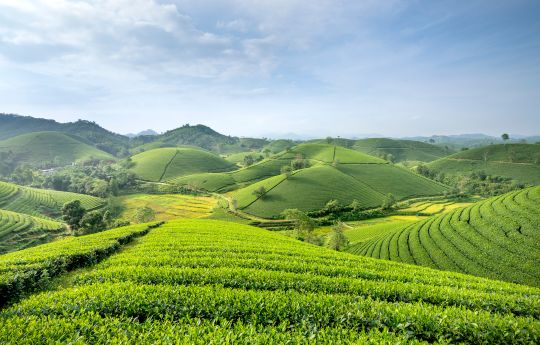
Koppert was founded in 1967 by Jan Koppert and sons Peter and Paul, to create a sustainable alternative to chemical pesticides. Teaming up with growers, partners, universities, research stations, and governmental bodies worldwide, Koppert’s alternative solutions are being used in more than one hundred countries.
Can you tell me a little about yourself?
I am David Foster, the Koppert UK General Manager. I have worked for Koppert for 24 years and as the General Manager since 2014. I am responsible for the business in the UK and Ireland.
History of Koppert…
Our core business is the supply of biological control and pollinators, meaning beneficial insects, mites, and bumblebees. In terms of the market, we are protecting vegetables including tomatoes, cucumbers, peppers, and aubergines, however, we are also moving into soft fruit crops due to several factors including loss of pesticides to the market, problems with chemical residues and resistance to pesticides in pest populations. We also supply across horticulture, including ornamental plants. We do see opportunities in open-field agriculture as we move forward with biological solutions, due to a range of factors including pollution, human health, and residue levels.
We are the market leader in the UK, and we are the global market leader in this field, operating in over one hundred countries around the world. The UK branch is the daughter company of the global Koppert brand, and we are the eldest daughter company, with operations beginning in 1981.
The importance of sustainability…
What is more sustainable than partnering with nature? We study nature at Koppert and find biological solutions. We believe that nature provides many of the solutions needed for sustainable food production. This links back to the history of the business, where our founder was experiencing severe allergic reactions from chemical pesticides used to tackle spider mites, leading him to create a more sustainable alternative solution. After experimenting with a predatory mite from Switzerland, he found his cucumber crops were recovering which led him to form Koppert. Even now, the product, Spidex (Phytoseiulus persimilis), is still growing exponentially in sales around the world every year. There have been many chemical options since used to treat the same pest, however many have been banned or they have become resistant.
To avoid unsustainable transportation, we have divested money into facilities across the globe including Africa, North America, and Europe. We are looking for other ways to reduce our carbon footprint further by tackling plastic packaging and implementing electric vehicles across the company. As a crucial factor in our business, the removal of chemicals from the agricultural industry is a big sustainable play. We are measuring year-on-year the reduction of chemicals and part of our mission is to reduce the use of pesticides tenfold in the next 10 years.
It is not just about the obvious sustainable avenues. While we all know the issues with plastics, we do not always remember the havoc that chemicals play to human health. Even going back a few generations, our grandparents and past relatives harvested food in a healthier and more sustainable fashion. Let us return to that and put more of a focus on the benefits of working with nature.
Where do you see the future of Koppert and pest control?
The world needs sustainable agriculture and Koppert wants to help achieve this goal, where biological control will be accepted as an effective mechanism to control pest and disease problems. Let us utilise nature fully by using, beneficial insects and mite, microorganisms and bacteria. While we know we have a niche, we want to play a role within the industry where we shift how people and governmental agencies approach food production and sustainable agriculture for the necessity of the planet and its people.
Why did you choose to sponsor New IPM 2024 and how did you benefit?
We decided to sponsor the event as we knew it was supporting the industry. My new colleague Ian Baxter is also heavily involved in New IPM, so we wanted to stand behind him and support the vision.
The event allowed us to think about potential sales avenues such as the forestry section, which is looking for solutions for pine weevil control, and meant we were able to connect with others in the same sector. We might not see all the benefits immediately, but what is clear is that the networking aspect is instrumental in helping the sector discuss innovations and focus on specific areas for growth. We also liked the regulatory discussion as it offered a realistic viewpoint on what it takes to bring a product to market. Getting to meet with our competitors is great as we get to discuss the market and potentially collaborate to make the industry more sustainable. As we say in our tagline, let us partner with nature and build a better future.
